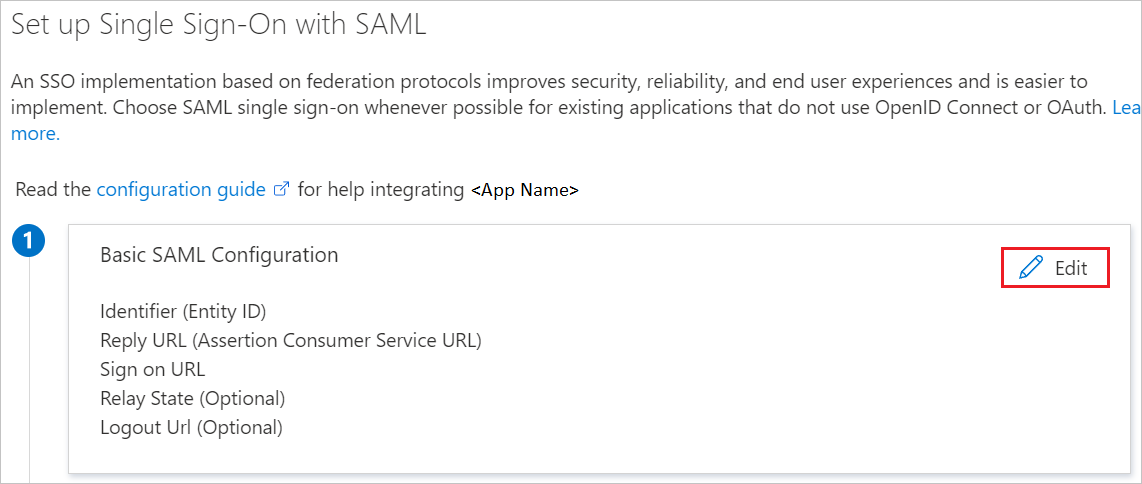Note
Access to this page requires authorization. You can try signing in or changing directories.
Access to this page requires authorization. You can try changing directories.
In this article, you learn how to integrate Versal with Microsoft Entra ID. When you integrate Versal with Microsoft Entra ID, you can:
- Control in Microsoft Entra ID who has access to Versal.
- Enable your users to be automatically signed-in to Versal with their Microsoft Entra accounts.
- Manage your accounts in one central location.
Prerequisites
To get started, you need the following items:
- A Microsoft Entra subscription. If you don't have a subscription, you can get a free account.
- Versal single sign-on (SSO) enabled subscription.
- Along with Cloud Application Administrator, Application Administrator can also add or manage applications in Microsoft Entra ID. For more information, see Azure built-in roles.
Scenario description
In this article, you configure and test Microsoft Entra SSO in a test environment.
- Versal supports IDP initiated SSO.
Note
Identifier of this application is a fixed string value so only one instance can be configured in one tenant.
Add Versal from the gallery
To configure the integration of Versal into Microsoft Entra ID, you need to add Versal from the gallery to your list of managed SaaS apps.
- Sign in to the Microsoft Entra admin center as at least a Cloud Application Administrator.
- Browse to Entra ID > Enterprise apps > New application.
- In the Add from the gallery section, type Versal in the search box.
- Select Versal from results panel and then add the app. Wait a few seconds while the app is added to your tenant.
Alternatively, you can also use the Enterprise App Configuration Wizard. In this wizard, you can add an application to your tenant, add users/groups to the app, assign roles, and walk through the SSO configuration as well. Learn more about Microsoft 365 wizards.
Configure and test Microsoft Entra SSO for Versal
Configure and test Microsoft Entra SSO with Versal using a test user called B.Simon. For SSO to work, you need to establish a link relationship between a Microsoft Entra user and the related user in Versal.
To configure and test Microsoft Entra SSO with Versal, perform the following steps:
- Configure Microsoft Entra SSO - to enable your users to use this feature.
- Create a Microsoft Entra test user - to test Microsoft Entra single sign-on with B.Simon.
- Assign the Microsoft Entra test user - to enable B.Simon to use Microsoft Entra single sign-on.
- Configure Versal SSO - to configure the single sign-on settings on application side.
- Create Versal test user - to have a counterpart of B.Simon in Versal that's linked to the Microsoft Entra representation of user.
- Test SSO - to verify whether the configuration works.
Configure Microsoft Entra SSO
Follow these steps to enable Microsoft Entra SSO.
Sign in to the Microsoft Entra admin center as at least a Cloud Application Administrator.
Browse to Entra ID > Enterprise apps > Versal > Single sign-on.
On the Select a single sign-on method page, select SAML.
On the Set up single sign-on with SAML page, select the pencil icon for Basic SAML Configuration to edit the settings.

On the Basic SAML Configuration page, perform the following steps:
a. In the Identifier text box, type the value:
VERSALb. In the Reply URL text box, type a URL using the following pattern:
https://versal.com/sso/saml/orgs/<organization_id>Note
The Reply URL value isn't real. Update this value with the actual Reply URL. Contact Versal Client support team to get these values. You can also refer to the patterns shown in the Basic SAML Configuration section.
Versal application expects the SAML assertions in a specific format, which requires you to add custom attribute mappings to your SAML token attributes configuration. The following screenshot shows the list of default attributes, whereas nameidentifier is mapped with user.userprincipalname. Versal application expects nameidentifier to be mapped with user.mail, so you need to edit the attribute mapping by selecting Edit icon and change the attribute mapping.

On the Set up single sign-on with SAML page, in the SAML Signing Certificate section, find Federation Metadata XML and select Download to download the certificate and save it on your computer.

On the Set up Versal section, copy the appropriate URL(s) based on your requirement.

Create and assign Microsoft Entra test user
Follow the guidelines in the create and assign a user account quickstart to create a test user account called B.Simon.
Configure Versal SSO
To configure single sign-on on Versal side, you need to send the downloaded Federation Metadata XML and appropriate copied URLs from the application configuration to Versal support team. They set this setting to have the SAML SSO connection set properly on both sides.
Create Versal test user
In this section, you create a user called B.Simon in Versal. Follow the Creating a SAML test user support guide to create the user B.Simon within your organization. Users must be created and activated in Versal before you use single sign-on.
Test SSO
In this section, you test your Microsoft Entra single sign-on configuration using a Versal course embedded within your website. Please see the Embedding Organizational Courses SAML Single Sign-On support guide for instructions on how to embed a Versal course with support for Microsoft Entra single sign-on.
You need to create a course, share it with your organization, and publish it in order to test course embedding.
Related content
Once you configure Versal you can enforce session control, which protects exfiltration and infiltration of your organization’s sensitive data in real time. Session control extends from Conditional Access. Learn how to enforce session control with Microsoft Cloud App Security.